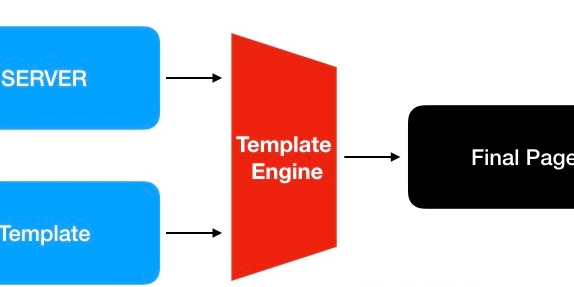Is Ai Underhyped
Is AI Underhyped? Artificial Intelligence (AI) has been a hot topic for years, but in recent times, the conversation around it seems to be shifting. While AI has already transformed multiple industries, from healthcare to finance, and even creative fields, many argue that its true potential is still underestimated. The question is—is AI underhyped? Or have we simply become desensitized to its rapid progress? The Case for AI Being Underhyped Exponential Growth and Advancements AI's capabilities are evolving at an astonishing pace. Every few months, new breakthroughs in large language models (LLMs), robotics, and generative AI push the boundaries of what was previously thought possible. Technologies like ChatGPT, Midjourney, and OpenAI's Sora are only the beginning. Yet, many people still view AI as a futuristic concept rather than a force that is already reshaping the world. AI's Role in Scientific Breakthroughs AI is quietly revolutionizing science and medicine. It is accelerating drug discovery, predicting protein structures, and even helping researchers find new materials for sustainable energy. These advancements are happening behind the scenes, making AI’s impact less visible to the general public. AI in Business and Productivity Many businesses are yet to fully integrate AI into their operations. While big tech companies have already automated large parts of their workflows, smaller companies and traditional industries are still lagging. As AI adoption increases, its impact on productivity and economic growth could be far greater than currently anticipated. The Rise of AGI (Artificial General Intelligence) While current AI systems are powerful, they are still narrow in their capabilities. However, experts believe that Artificial General Intelligence (AGI), AI that can perform any intellectual task a human can, is approaching faster than expected. If AGI becomes a reality, it will be the most disruptive technological shift in human history. The Case for AI Being Overhyped Overestimation of Short-Term Impact While AI is improving rapidly, it still struggles with many real-world applications. Self-driving cars, for example, were expected to be mainstream by now, but safety and regulatory challenges have slowed their deployment. Similarly, AI chatbots still make factual errors, and biases in AI models remain an issue. The Automation Hype vs. Reality Many fear AI will replace jobs on a massive scale, but history shows that automation often leads to job shifts rather than outright destruction. While AI will eliminate some roles, it will also create new ones, requiring humans to adapt rather than become obsolete. Ethical and Regulatory Hurdles AI is facing increasing scrutiny from governments worldwide. Data privacy, AI-generated misinformation, and biases in machine learning models have raised concerns. Stricter regulations could slow down AI's progress, making some of the more ambitious predictions less likely in the near future.

Is AI Underhyped?
Artificial Intelligence (AI) has been a hot topic for years, but in recent times, the conversation around it seems to be shifting. While AI has already transformed multiple industries, from healthcare to finance, and even creative fields, many argue that its true potential is still underestimated.
The question is—is AI underhyped? Or have we simply become desensitized to its rapid progress?
The Case for AI Being Underhyped
Exponential Growth and Advancements
AI's capabilities are evolving at an astonishing pace. Every few months, new breakthroughs in large language models (LLMs), robotics, and generative AI push the boundaries of what was previously thought possible. Technologies like ChatGPT, Midjourney, and OpenAI's Sora are only the beginning. Yet, many people still view AI as a futuristic concept rather than a force that is already reshaping the world.
AI's Role in Scientific Breakthroughs
AI is quietly revolutionizing science and medicine. It is accelerating drug discovery, predicting protein structures, and even helping researchers find new materials for sustainable energy. These advancements are happening behind the scenes, making AI’s impact less visible to the general public.
AI in Business and Productivity
Many businesses are yet to fully integrate AI into their operations. While big tech companies have already automated large parts of their workflows, smaller companies and traditional industries are still lagging. As AI adoption increases, its impact on productivity and economic growth could be far greater than currently anticipated.
The Rise of AGI (Artificial General Intelligence)
While current AI systems are powerful, they are still narrow in their capabilities. However, experts believe that Artificial General Intelligence (AGI), AI that can perform any intellectual task a human can, is approaching faster than expected. If AGI becomes a reality, it will be the most disruptive technological shift in human history.
The Case for AI Being Overhyped
Overestimation of Short-Term Impact
While AI is improving rapidly, it still struggles with many real-world applications. Self-driving cars, for example, were expected to be mainstream by now, but safety and regulatory challenges have slowed their deployment. Similarly, AI chatbots still make factual errors, and biases in AI models remain an issue.
The Automation Hype vs. Reality
Many fear AI will replace jobs on a massive scale, but history shows that automation often leads to job shifts rather than outright destruction. While AI will eliminate some roles, it will also create new ones, requiring humans to adapt rather than become obsolete.
Ethical and Regulatory Hurdles
AI is facing increasing scrutiny from governments worldwide. Data privacy, AI-generated misinformation, and biases in machine learning models have raised concerns. Stricter regulations could slow down AI's progress, making some of the more ambitious predictions less likely in the near future.











































































































































































![[The AI Show Episode 142]: ChatGPT’s New Image Generator, Studio Ghibli Craze and Backlash, Gemini 2.5, OpenAI Academy, 4o Updates, Vibe Marketing & xAI Acquires X](https://www.marketingaiinstitute.com/hubfs/ep%20142%20cover.png)




























































































































![[DEALS] The Premium Learn to Code Certification Bundle (97% off) & Other Deals Up To 98% Off – Offers End Soon!](https://www.javacodegeeks.com/wp-content/uploads/2012/12/jcg-logo.jpg)


![From drop-out to software architect with Jason Lengstorf [Podcast #167]](https://cdn.hashnode.com/res/hashnode/image/upload/v1743796461357/f3d19cd7-e6f5-4d7c-8bfc-eb974bc8da68.png?#)








































































































.png?#)

































_Christophe_Coat_Alamy.jpg?#)
 (1).webp?#)





































































































![Apple Considers Delaying Smart Home Hub Until 2026 [Gurman]](https://www.iclarified.com/images/news/96946/96946/96946-640.jpg)
![iPhone 17 Pro Won't Feature Two-Toned Back [Gurman]](https://www.iclarified.com/images/news/96944/96944/96944-640.jpg)
![Tariffs Threaten Apple's $999 iPhone Price Point in the U.S. [Gurman]](https://www.iclarified.com/images/news/96943/96943/96943-640.jpg)




































































































































